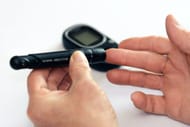Why my feet are always cold? Well, if you get cold feet at night, remember that you are not alone as the condition is quite common among many people. While some of the causes of cold hands and feet are harmless and are nothing to worry about, others could be a sign of an underlying health condition.
It can either be a sign of stress or nutrient deficiency or a symptom of a more serious condition which might require immediate medical attention.
In the article, we’ve listed some of the most common causes why your feet might feel cold all the time, particularly at night.
Reasons for cold feet at night
There are numerous causes of cold feet. While the most common reason could be lack of warmth, there are several different causes as well. Here are some potential reasons why you have constant cold hands and feet.
1. Vitamin B12 deficiency

Deficiency of vitamin B12 is a potential reason why you might get cold feet. Not getting enough vitamin B12 in your diet can lead to pernicious anaemia, which may further cause nerve damage and make it difficult for the oxygen to spread around the body.
This, as a result, can lead to poor blood circulation in the feet and hands and make them extremely cold. Some other symptoms of vitamin B12 deficiency that you should look out for include tingling sensation in the feet and hands, loss of balance, and muscle weakness.
2. Poor blood circulation

Poor blood circulation in the body is another very common cause of cold feet. That’s because poor circulation limits warm blood to flow into the feet and as a result, keeps them cooler. This can be quite unpleasant and frustrating.
3. Diabetes

Type 1 and type 2 diabetes can lead to nerve damage, also known as diabetic peripheral neuropathy, which may result in cold hands and feet in addition to a tingling sensation.
High blood sugar levels can affect the arteries and also reduce the supply of blood to the tissues, leading to cold feet.
4. Stress and anxiety

High stress and anxiety may also lead to cold hands and feet, particularly at night. That’s because adrenaline can constrict the blood vessels and reduce blood supply to important parts of the body, including feet and hands.
5. Peripheral artery disease (PAD)

Cold feet can be caused by peripheral artery disease, too, particularly in older people. This condition occurs when the arteries become thin and plaque starts to develop inside the artery walls in the body.
6. Hypothyroidism

If you have hypothyroidism, chances are you’ll feel that your hands and feet are cold frequently. Hypothyroidism occurs when the thyroid glands don’t produce thyroid hormones and eventually become underactive.
This, as a result, affects the body’s overall metabolism system and triggers problems with blood circulation, leading to cold hands and feet.
7. Side effects of medicines

There are several medicines that could potentially cause cold feet and hands as a side effect. However, this depends on how the medication interacts with the blood circulation in the body.
Examples of medicines that could lead to cold hands and feet include certain beta blockers, pseudoephedrine, and more.
8. Smoking

Excessive smoking is also a major reason why your hands and feet feel cold all the time. That’s because smoking damages the blood vessels and limits blood flow to different organs of the body, leading to cold feet and hands.
It is important to remember that cold hands and feet can affect almost anyone at any age. But it's more common among people with autoimmune issues, nervous system problems, hormonal issues, and blood circulation problems.
Moreover, if you experience cold hands and feet along with symptoms like joint pain, fatigue, sores, skin rashes, and rapid weight changes, consult your doctor as soon as possible.
